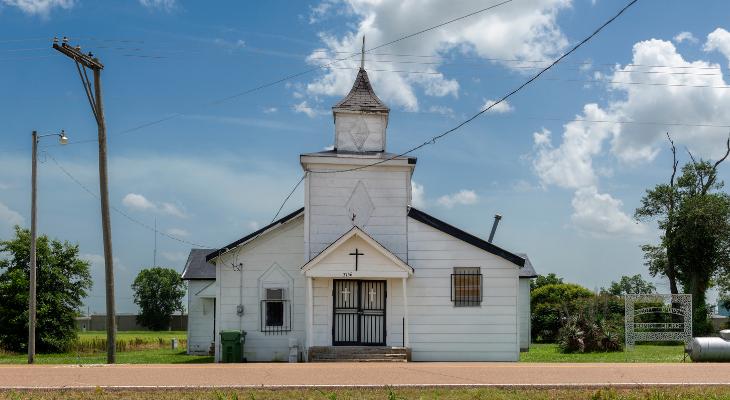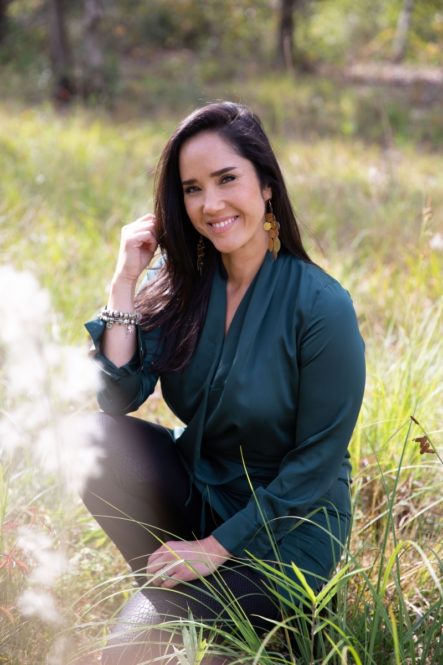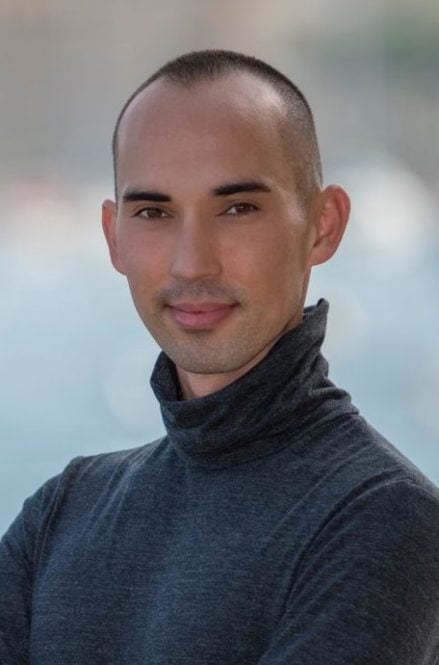On World AIDS Day, a Challenge to Southern Churches: End the Stigma
December 1, 2021

Sanja Moon Daniels and her brother, Joshua Moon Johnson, grew up attending small evangelical Christian churches in Mississippi, homeschooled by parents who served as ministers in the Assemblies of God denomination. Today, both are advocates for people living with HIV/AIDS. They wrote the following essay in honor of World AIDS Day.
“There’s a major stigma here for people living with HIV and AIDS,” Daniels says. She focused her graduate school research on efforts to remedy this. “My sole purpose was to help create a data base of the resources for the lower six counties of Southern Mississippi. I really have come to love being an advocate for people living with HIV and AIDS.”
Johnson is an author and educator in Sacramento, California. “One thing I would hope is people just talk about it. Acknowledge it. This is part of our lives. I guarantee there are people sitting in those churches that are HIV positive and living with HIV/AIDS, or someone in their family is,” Johnson says. “Then after talking about it, really humanizing it as well.”
Fear, Phobia and Stigma in Southern Churches
Tammy Faye, a Christian televangelist, is interviewing Stephen Pieters, an openly gay man living with HIV/AIDS, on her evangelical TV show. She shows compassion, love, and empathy while others treat him with disgust. Tammy knew bringing Stephen on her show would cause controversy and she could lose viewers, yet she welcomed him and even stated she wished she could hug him. This was during a time when most feared getting near someone living with HIV/AIDS. This is a critical scene in the film “The Eyes of Tammy Faye,” the 2021 biopic directed by Michael Showalter. Our family actively watched this channel and show in the 1980s as we grew up in Mississippi in an evangelical social sphere. This was a scene I, Joshua, never saw, and it would have radically changed my life. We write this piece as siblings who grew up in Mississippi in the ‘80s and ‘90s, were homeschooled most of our lives by our parents, both Pentecostal ministers. Most things we learned growing up were from church, our Christian homeschool curriculum, and our almost entirely evangelical social circle.
We learned many wonderful things, such as centering Christ and serving others. We were also taught things we now know are tremendously grounded in hate and fear. We approach this writing with humility and in the spirit of constant growth. Our early ideas, feelings, and actions were stigmatizing of people living with HIV/AIDS. We have evolved in our own journeys to now be advocates who want the world, churches, and the Southern U.S. to be places where those living with HIV/AIDS can thrive, belong, and live happy and healthy lives. Neither of us currently live with HIV/AIDS, so we approach this writing with limited lived experiences and as outsiders. Our goals are not to speak for those living with HIV/AIDS, but to speak to others in Southern religious communities and to challenge harmful ideas, behaviors, and policies.
Share
Related Articles
American Civic Life
We Commemorate, We Commit: Out of Catastrophe, a Conversation on Connection and Repair
Racial Equity
American Civic Life

Sanja: As a child and into young adulthood my description of someone who has HIV/AIDS would be a “homosexual” or “sexually promiscuous.” My views were due to a lack of knowledge from adults who influenced me, and it was a scare tactic for me to be sexually “pure” as a Christian woman. Most of my life I feared people living with HIV because I didn’t want to catch it or be associated with someone living with HIV. I was also taught that people living with HIV/AIDS deserved it and it was a form of God’s punishment. Convenient how some Christians can selectively apply grace.
It took me until my 40s to be exposed to counter-narratives and facts. I’m saddened by my past held beliefs; moreover, it pains me to know that I listened to fellow church people speak negatively towards people living with HIV/AIDS, and I didn’t challenge them. My perspective and commitment to advocacy changed when I enrolled in a Master of Social Work program at the University of Southern Mississippi. I’m in my second year now and on a research team aiming to provide education and access to people in Mississippi living with HIV/AIDS. I was fearful when I was placed on this project; however, I quickly learned how wrong much of my thinking was and how I missed many opportunities to love those who were marginalized in our communities. The Centers for Disease Control and Prevention reports that of the 37,968 new HIV diagnoses in the U.S. in 2018, 51% were in the South. I continue to learn about injustices impacting those living with HIV/AIDS, which also intersects with Black/African American people, poor, and LGBTQ+ people. I know my research and advocacy is critical to me as a social worker and as a Christian. The extremely evangelical culture intensifies the ability to support and advocate for those living with HIV/AIDS. The last year has been a journey, and it’s just beginning. Education is key in ending the stigma that HIV carries.

Joshua Moon Johnson
I soon met close friends who openly discussed their positive status. They challenged my ideas and humanized these false ideas I held. It has taken many years, but I have worked to understand, destigmatize, and support those living with HIV/AIDS. As I became more immersed in social justice theory and knowledge, I learned how society has depicted HIV/AIDS, and how I have been socialized with misinformation and shame. My upbringing in the rural South, in an evangelical circle that was often homophobic, racist, classist, and sexist taught me shame, stigma, and even hatred. As I came to terms with my queerness, femininity, and Christianity, I have learned now to understand, love, and advocate.
The process to learning and unlearning is a journey, and we challenge all those Christians, especially in the South, to humanize HIV/AIDS, to practice empathy and humility, to research and read, to donate and to vote for resources to support those living with HIV/AIDS. There are many specific reasons that Mississippi has the nation’s sixth highest rate of HIV infection.. We must all work to do better with educating and advocating. To our church folks, lets reflect on the actions of Jesus and model his behavior, attitudes, and spirit. Our churches and religious communities should be beacons of hope and be the biggest accomplices to those society has dismissed. Please bring this up as congregations talk about serving and missions. We challenge you to do this work with a pure heart, centered on love and not arrogance or performativity. We hope you can do better. We hope we can do better.
About the authors:
Sanja Moon Daniels (she/her) was born in south Mississippi and is a multiracial Asian American. Sanja is a student in the Master of Social Work program at the University of Southern Mississippi; she holds a bachelor’s degree in Child and Family Studies. When Sanja is not studying, she is usually volunteering in her community with her therapy dogs, Piglet and Jerusha. She also enjoys spending time with her two children and husband of thirteen years, and he is a strong supporter of her faith and passion to serve others.
Dr. Joshua Moon-Johnson (he/him) is an award-winning author and educator. He serves as a Dean of Student Services at American River College in Sacramento, California, and as a Managing Partner at PMJ Consulting. Joshua has published multiple books; his first book, “Beyond Surviving: From Religious Oppression to Queer Activism” was a #1 Best-seller on Amazon.com. Joshua previously served as Director of the Multicultural Center at University of Wisconsin and as the Director of LGBT Services at University of California, Santa Barbara. Joshua received a doctorate degree in education and LGBT studies from Northern Illinois University and a master’s degree in student affairs and diversity from Binghamton University.



